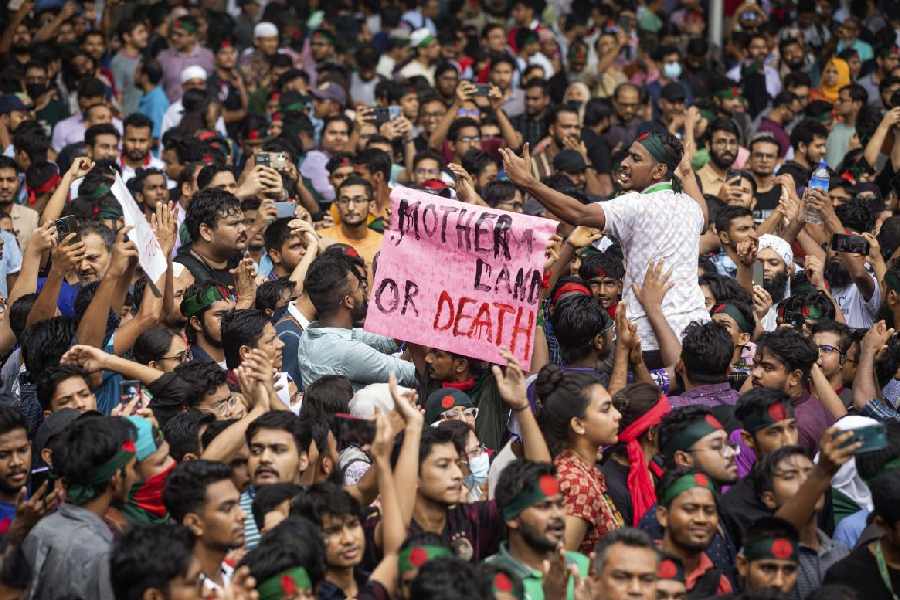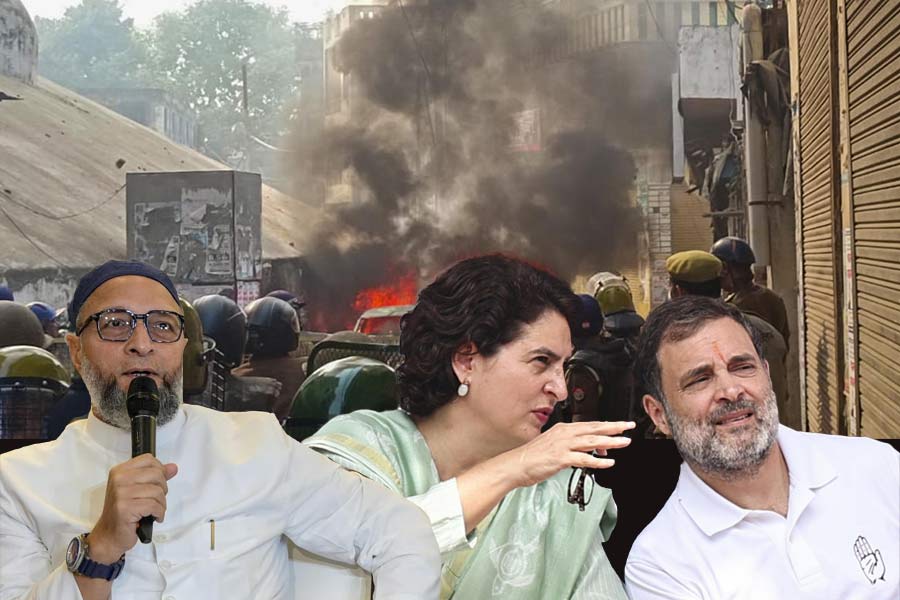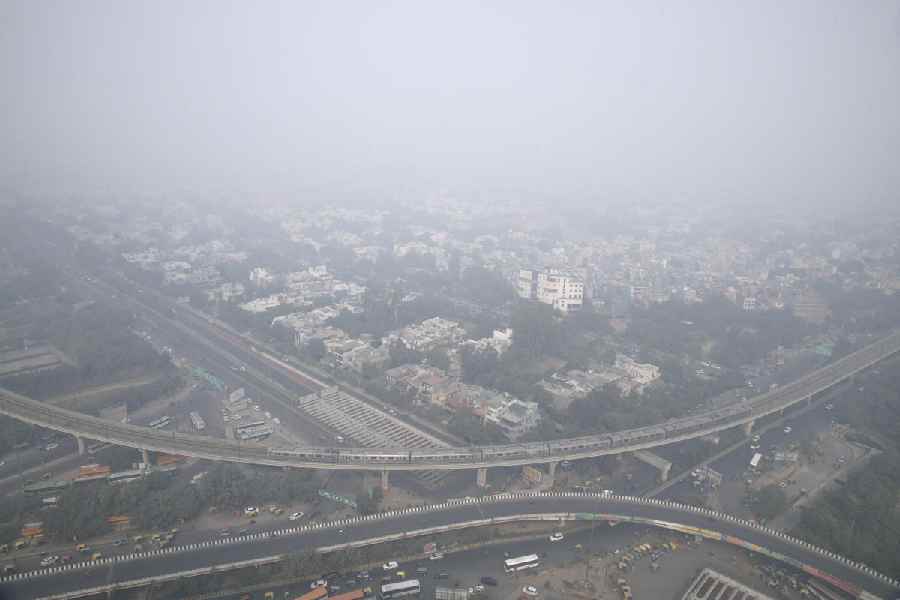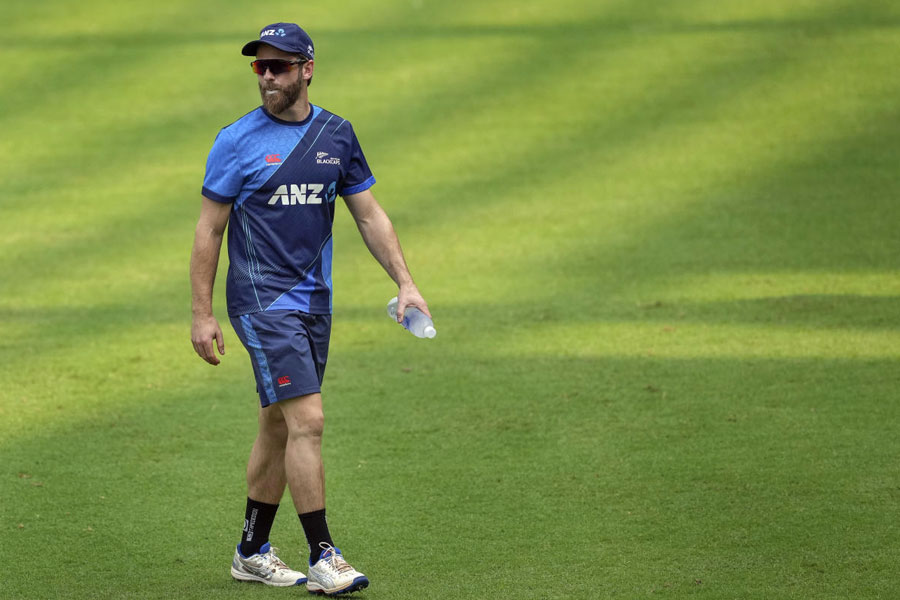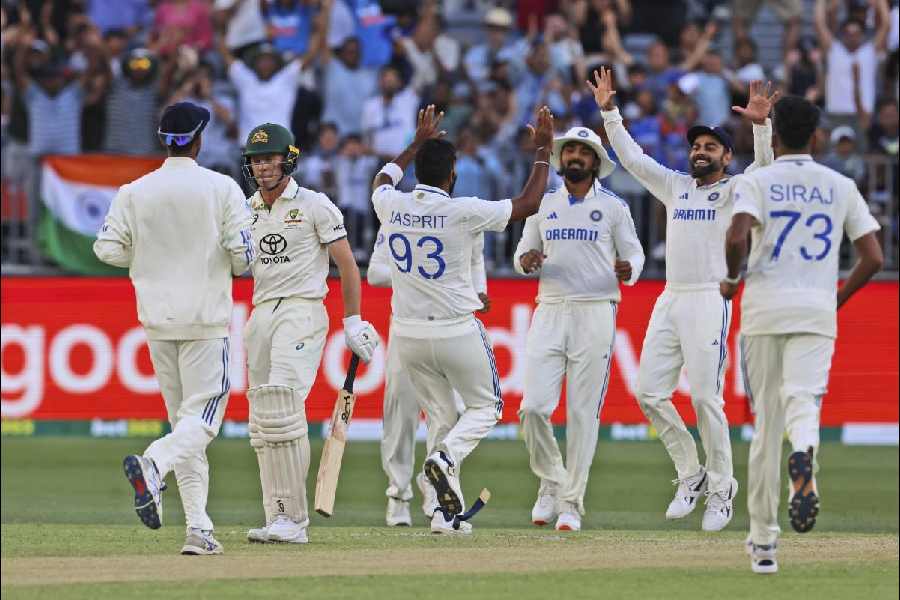The world is three days into the month of August, but not the student protesters in Bangladesh. For Saturday’s call for a nationwide assembly in various towns and cities including the capital of Dhaka, the event date was given as 34th July in various social media posts.
“Bloody July has not ended for us,” a student activist, who has been on the run from the government crackdown on the job-quota protests since last month, told The Telegraph Online.
Much blood has been spilled on the streets of India’s eastern neighbour since July.
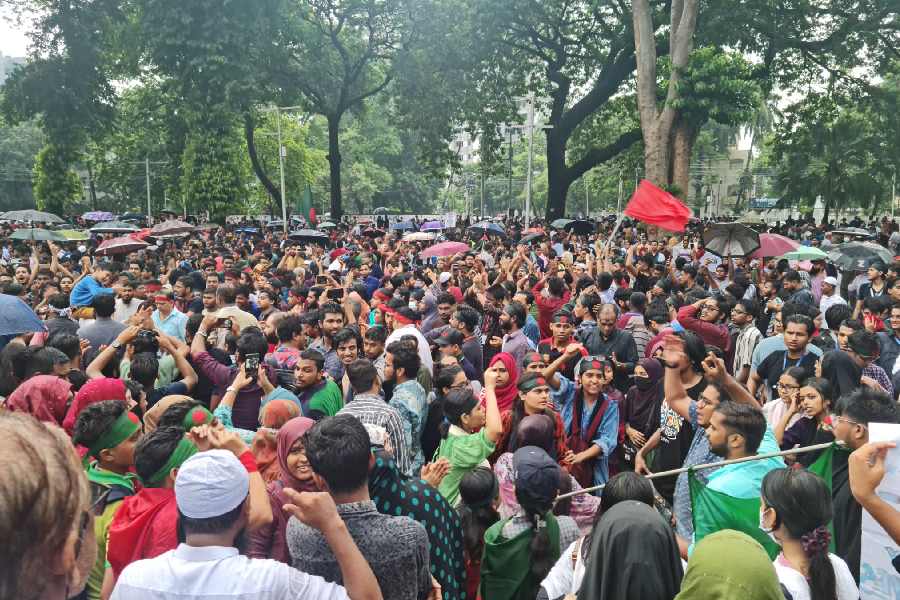
Arnab Ganguly
The Bangladesh government has pegged the death toll from the crackdown on the protests at 150 people. Dhaka daily Prothom Alo puts it at over 200. Many others in Bangladesh believe the actual number could be far higher.
The nine-point demand raised by the Students against Discrimination has now been scaled down to one: Resignation of Prime Minister Sheikh Hasina and her ministers.
The protesters announced the new demand at Dhaka’s Shaheed Minar on Saturday afternoon in a rally attended by students, teachers and others. Bangladeshi musicians who had assembled at Dhan Mundi’s Rabindra Sarobar marched to Shaheed Minar to express their solidarity with the students.
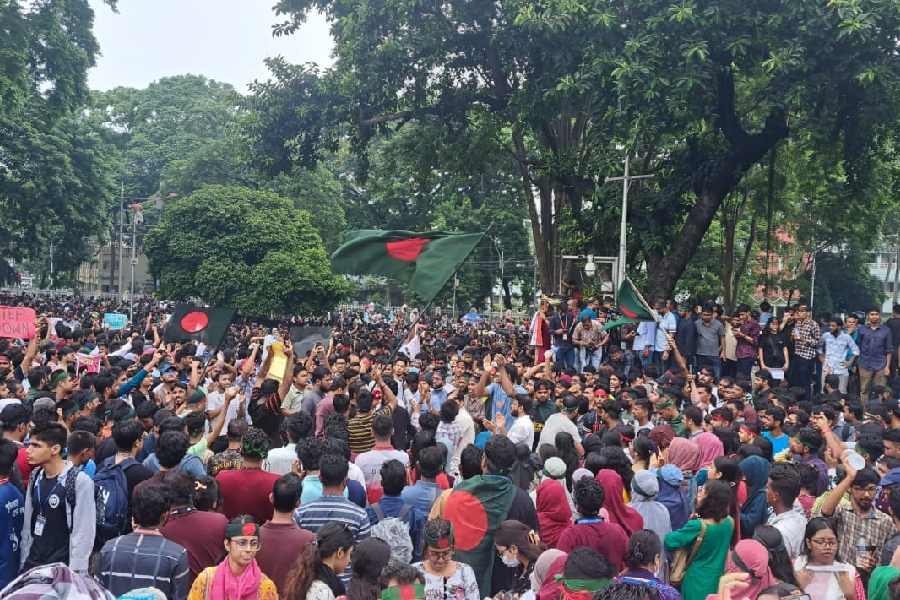
Hasina has called a meeting of the National Committee on Security Affairs – the highest policy making authority on national security – on Sunday at Gono Bhaban. The PM had also sent out a message of dialogue to the agitating students, saying her doors at Gono Bhaban were open. The protestors turned down the invitation.
The violence resumed in Comilla, Sylhet, Jamalpur, Gazipur and some other parts on Saturday. In some places, like Dhaka and Chittagong, confrontation was avoided between the protesters, the armed forces and students aligned with the ruling Awami League.
Videos of girl students crying for help – “Uncle, please open the door” — from Comilla’s Jhilla Milla, Kandirpara Pubali amid what sounded like gunshots were shared widely on Facebook and other social media platforms.
In Faridpur, eight protesters were injured in a clash with the police. At least seven protesters were admitted to the Comilla Medical College with pellet injuries.
“The PM should go to the students instead of summoning them,” said Dr Md Nadiruzzaman, an assistant professor of health governance at Maastricht University in the Netherlands, who has been in Dhaka since July 11. “She doesn’t deserve their respect.”
On July 19, Nadiruzzaman and his wife were at the Alok Hospital adjacent to the Mirpur Metro station that was burnt down.
“From what I saw, the agitating students had chased away members of the Chhatra League and police who took shelter at the Metro station,” Nadiruzzaman told The Telegraph Online over phone from Dhaka.
“I did not see any of the protesters holding anything other than a lathi, while those aligned with the government carried sharp weapons and firearms.”
Nadiruzzaman participated in a protest meet at Dhaka on Friday along with his wife and 11-year-old daughter. He was again at Dhaka’s Shahid Minar on Saturday evening.
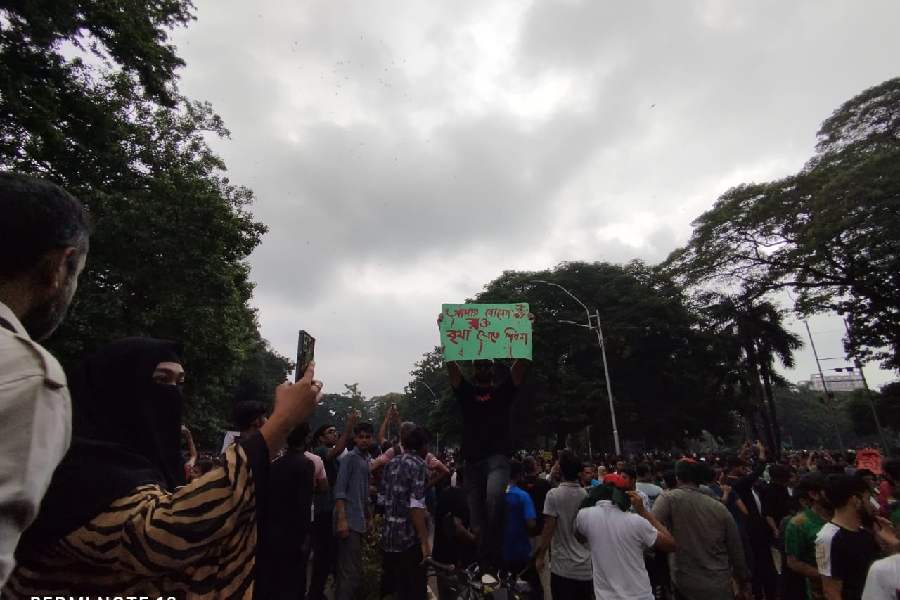
“The policemen outnumbered us by at least three times. We are caught in a binary politics of pro-government or pro-Jamaat. A third voice no longer has a space,” he said.
Another teacher at a university in Chittagong said a huge number of city residents had turned out against the Chhatra League which had led a procession.
Another government college teacher, who did not want to be identified, said they were feeling stifled as they could not express their support for the protesting students for fear of losing their jobs.
“After all, we are government employees. We do not have that privilege. As presiding officers in the last three elections, me and my colleagues have seen how the elections were manipulated. If we gather the courage to speak out on these matters, the world would be ashamed to know how democracy has been trampled,” he said.
“As teachers we have a moral responsibility towards the students. Sadly we are unable to perform it.”
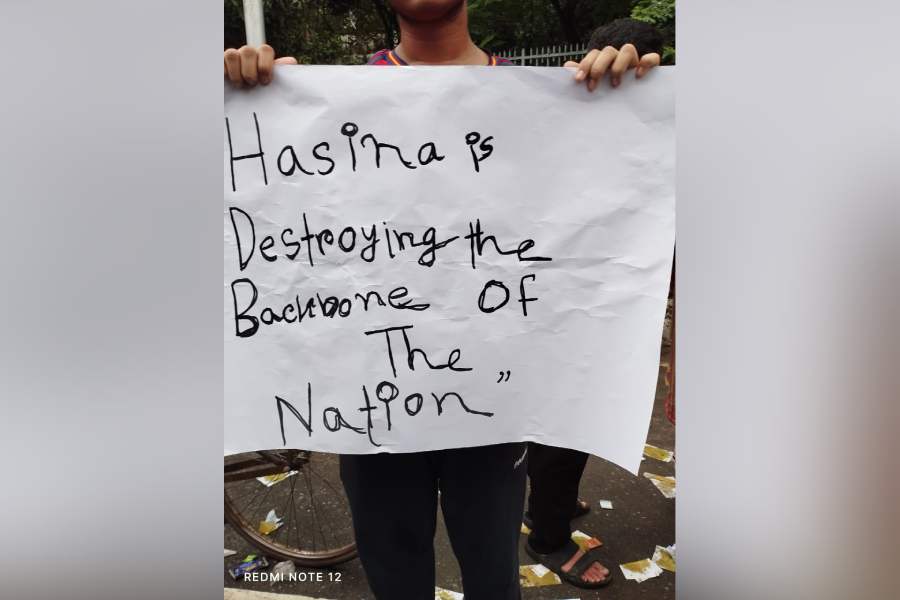
At least 32 children dead in Bangladesh: Unicef
At least 32 children, the youngest among them not even turned five, were killed in the July violence over the quota system in government jobs, Unicef said in a statement Saturday.
Since the violence, hundreds of students and activists have been picked up from their homes and put behind bars.
The detainees include a rapper named Hannan Hossain Shimul ‘Hannan’, whose song ‘Awaaz Utha’ has garnered over 350,000 views on YouTube and has become an anthem for the ongoing movement.
Hannan was picked up from Narayangunj’s Bhuighor area on July 25.
“Hannan’s arbitrary arrest is the most recent in a series of brutal and systematic attacks on free expression in Bangladesh,” Adam Shapiro, senior manager of international programs at Artists at Risk Connection (ARC), said in a statement posted on the ARC website.
The ARC, supported by the Mellon Foundation, is a New York-based global platform dedicated to persecuted artists across the world.
“The lack of transparency surrounding his arrest further compounds the utter disregard to due process and basic human rights that has been on display by the Bangladeshi authorities. ARC calls for the immediate release of Hannan, and stands in solidarity with the people of Bangladesh as they confront brutal repression by the Bangladeshi security forces,” Shapiro wrote.

